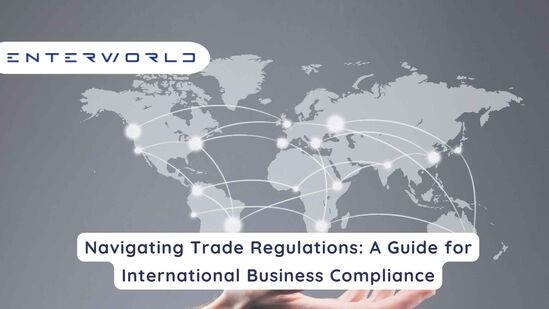


This guide covers import/export rules, customs compliance, documentation, sanctions, and risk management for global businesses.
Expanding beyond borders and entering new markets offers lucrative opportunities, but it also presents a labyrinth of legal and regulatory requirements. Understanding and adhering to trade regulations is one of the most critical components of a successful global business setup. From tariffs and trade agreements to licensing and customs, navigating international business compliance can be complex—but essential.
This guide breaks down the fundamental aspects of trade regulations and provides actionable steps to help you stay compliant as you start a global business.
Trade compliance is more than just checking off a few legal boxes—it’s about protecting your business from costly penalties, delays, and damaged reputations. For any international business setup, failing to comply with trade laws can result in:
Seized shipments
Fines or legal action
Denied export privileges
Loss of trust from partners and customers
Conversely, a proactive approach to compliance enables smoother operations, faster market entry, and a competitive edge.
Before launching into a new market, it’s vital to understand which regulations apply. While rules vary by country, here are some common areas that affect international trade:
Many countries regulate what goods can be exported or imported. Items like advanced technology, pharmaceuticals, or defense equipment often require special licensing. Understand your product classification (like HS or ECCN codes) and whether any restrictions apply.
Every country has a customs agency responsible for monitoring goods crossing borders. Ensuring proper documentation, correct valuation, and payment of duties can prevent delays and complications at customs checkpoints.
These taxes on imported goods vary greatly by product and destination country. Leveraging trade agreements (like USMCA or EU trade accords) may help you reduce or eliminate tariffs, making your offerings more competitive in foreign markets.
Certain countries or individuals may be subject to sanctions that prohibit trade. Always screen customers and partners using government lists (e.g., OFAC in the U.S.) to avoid unintended violations.
Product safety, labeling, and packaging laws often differ across borders. For example, food and cosmetic regulations in the EU can be significantly stricter than in North America. Non-compliance could lead to product recalls or bans.
Whether you’re a startup planning an international business setup or an established firm scaling globally, here are essential steps to maintain compliance:
Before shipping goods, assess your current operations. Are you meeting documentation standards? Do you have proper classification codes? An audit helps identify risks early and establish corrective measures.
Regulations change frequently. Partnering with international trade attorneys, freight forwarders, or compliance consultants ensures you’re aligned with current laws in every market.
Create internal protocols for checking export classifications, licensing needs, and documentation. This may include training employees, using compliance software, and setting up reporting mechanisms for red flags.
Subscribe to updates from trade authorities like the WTO, ITC, or national customs websites. Staying informed helps you pivot quickly when regulations evolve.
Many laws require businesses to keep export records for a set period. Digital systems make this easier and also support audits or investigations if they arise.
Even with preparation, businesses often face hurdles such as:
Complex or contradictory regulations in different jurisdictions
Language barriers and miscommunication with overseas partners
Cultural misunderstandings affecting negotiations or documentation
Logistical issues like delayed shipments or denied entries
Anticipating these issues and building relationships with knowledgeable partners—such as global logistics companies and in-country legal advisors—can make the process smoother.
Starting and scaling a business globally is an exciting venture filled with potential. However, a strong foundation in trade compliance is crucial for long-term success. Whether you’re planning a global business setup or looking to expand into new markets, investing in compliance from the start will save time, reduce risk, and build trust with stakeholders around the world.
International trade may be complex, but with the right knowledge and support, you can navigate the maze of regulations and position your business for sustainable global growth.
